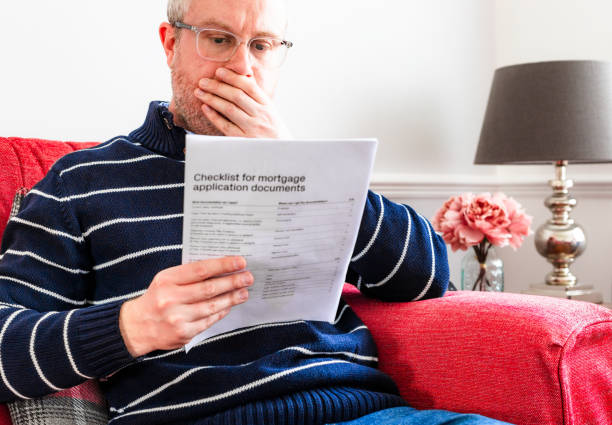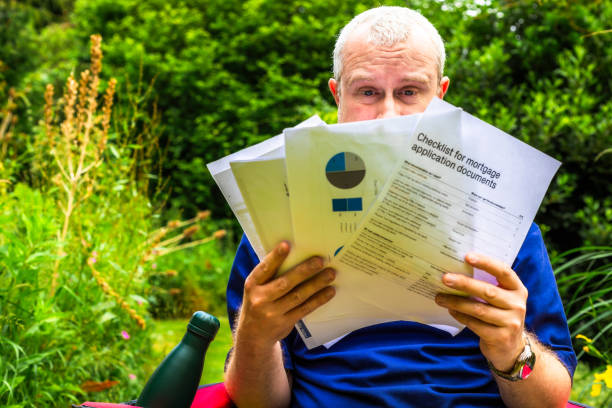Buying a home is one of the most significant financial decisions many people will ever make. From choosing the right neighborhood to navigating mortgage options, the process can feel overwhelming. Along the way, there are numerous documents and steps that may seem confusing, but each serves a purpose. One of the most important documents you will encounter is the mortgage commitment letter. Understanding what it is, how it works, and why it matters can make your homebuying journey smoother, reduce stress, and even strengthen your position when making an offer.
For many first-time buyers, terms like “mortgage commitment letter” or “mortgage loan commitment letter” can seem daunting. However, knowing what this document represents and what to expect can help you feel more confident in your home purchase.
What Is a Mortgage Commitment Letter?
A mortgage commitment letter is an official document issued by a lender confirming that, based on their evaluation of your financial and credit information, they are willing to provide you a mortgage loan. This letter is different from a pre-approval. While pre-approval is an early indication of potential eligibility, a mortgage commitment letter comes after your full financial background has been reviewed and underwriting is complete. It’s a formal guarantee from the lender that, provided all conditions are met, your loan will be funded.
Sometimes referred to as a mortgage loan commitment letter, this document is a critical step in the homebuying process. It signals to sellers, real estate agents, and other stakeholders that you are a serious, qualified buyer. In short, when you ask “what is a mortgage commitment letter?”, you are asking about a formal promise from your lender that bridges the gap between loan approval and the closing of your new home.
The letter typically includes essential details such as the approved loan amount, interest rate, loan term, and any conditions you must meet before funding. Having this document in hand gives both buyers and sellers confidence that the transaction is financially solid.

Types of Mortgage Commitment Letters: Conditional vs. Final
There are generally two types of mortgage commitment letters, each with its own role in the homebuying process:
Conditional Commitment Letter
This letter is issued when the lender has approved your mortgage application in principle, but certain conditions still need to be met. These conditions might include providing additional financial documentation, completing a home appraisal, or securing homeowners insurance. Until these requirements are satisfied, the commitment remains conditional. Conditional letters are common, especially for first-time buyers or those purchasing new construction, because lenders need to verify details about both the borrower and the property.
Final Commitment Letter
Once all conditions have been met, the lender issues a final commitment letter. This document confirms that the mortgage is fully approved and ready to be funded, leading directly to the closing process. A final commitment letter provides peace of mind for both buyers and sellers because it confirms that there are no remaining hurdles to securing financing.
Understanding the distinction between these two types is crucial. A conditional commitment indicates progress but still requires action, whereas a final commitment signals that the transaction is ready to move forward without further lender-imposed requirements.

What’s Included in a Mortgage Commitment Letter
A mortgage loan commitment letter contains several important pieces of information. These details clarify exactly what the lender is promising and the obligations you must meet to secure your loan. Typical elements include:
1. Approved Loan Amount:
This specifies the exact amount the lender has agreed to provide, which is crucial for both budgeting and making a competitive offer.
2. Interest Rate and Loan Term:
The letter will detail the interest rate and whether it is fixed or adjustable, along with the term of the loan, such as 15, 20, or 30 years.
3. Conditions to Fulfill:
Conditional letters will list any remaining requirements, such as documentation of income, proof of insurance, or completing a property appraisal.
4. Loan Product Type:
The letter specifies the type of mortgage you are approved for, which can influence monthly payments and long-term financial planning.
5. Expiration Date:
Most letters are valid for a limited time, typically 30–60 days, ensuring the lender’s approval remains current before closing.
Knowing what’s included in the letter helps buyers understand their responsibilities and allows them to prepare for any remaining steps needed to finalize the mortgage.

When Do You Receive a Commitment Letter
The timing of a mortgage commitment letter is another critical factor in the homebuying process. Generally, the letter comes after underwriting and the property offer has been accepted. Here’s a typical sequence:
- Pre-Approval: This early step provides a preliminary estimate of your eligibility and loan amount.
- Offer Acceptance: You submit an offer on a property, which is accepted by the seller.
- Underwriting: The lender thoroughly reviews your financial documents, credit history, and property appraisal.
- Conditional or Final Commitment: Depending on your situation and documentation, the lender issues either a conditional or final mortgage commitment letter.
Receiving this letter is a major milestone. It signals that your financing is secure and positions you as a credible, serious buyer, which is especially important in competitive housing markets.

Why It Matters for Buyers and Sellers
A mortgage commitment letter carries significant weight in real estate transactions:
- For Buyers: It demonstrates financial readiness and allows you to negotiate with confidence. Sellers are more likely to accept offers from buyers who have a commitment letter because it reduces the risk of financing falling through.
- For Sellers: It provides assurance that the buyer’s financing is verified, making the sale more secure. This can be particularly advantageous in a hot market with multiple competing offers.
- For Real Estate Agents: The letter clarifies the buyer’s financing status and can streamline communication between parties, helping to reduce delays and prevent last-minute issues.
In essence, the letter is more than a piece of paper—it is a tool that can directly influence the speed, success, and confidence of a property transaction.
Next Steps After Receiving the Letter
Once you have your mortgage commitment letter in hand, you may wonder “what happens after mortgage commitment letter?” Here are the next steps buyers typically follow:
- Review Conditions: Carefully examine the letter for any remaining requirements that must be completed before closing.
- Complete Appraisal and Inspection: Ensure that property evaluations are finalized and meet lender expectations.
- Secure Homeowners Insurance: Provide proof of insurance as required by your lender.
- Prepare for Closing: Work with your agent and lender to schedule the closing date, review settlement documents, and arrange final payments.
By addressing these steps promptly, you help prevent delays and ensure a smooth path to officially obtaining your mortgage.

Conclusion
Understanding a mortgage commitment letter is crucial for anyone navigating the homebuying process. It provides clarity, strengthens offers, and ensures buyers meet lender requirements before closing. Knowing what is a mortgage commitment letter, its types, contents, and timing allows you to move forward with confidence and avoid common pitfalls in securing financing.
Dwanderful is a real estate investment platform and podcast hosted by Dwan, designed to guide both new and experienced investors. On the site, Dwan offers a free book entitled “Real Estate Lingo” and a paid guide called “Five Pillars of Real Estate Investing.” Additionally, visitors can take a fun, interactive quiz game to discover how they could generate six figures in the next six months, whether they’re buying their first property or their next. (Takes less than a minute!) Dwanderful provides valuable tools and guidance to help buyers and investors navigate the real estate world with confidence. Book a call now!



